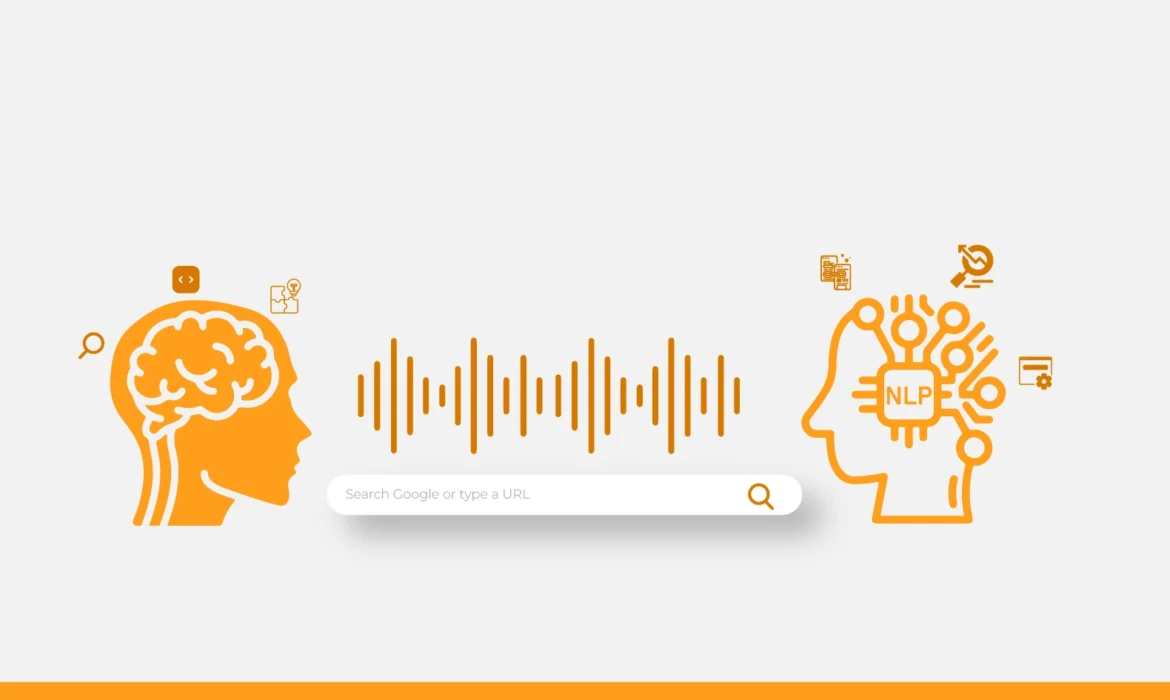
Search engines have moved from simple tools that searched for keyword matches to advanced algorithms that are able to grasp context, intent, and even emotions. The reason for this is the addition of Natural Language Processing (NLP), through which search engines are able to process human language in a way that comes across as natural and easy to use.
Because of NLP, search engines aren’t stuck on keywords. They figure out what you’re really asking, so the results you get are way better. This blog post will look at how NLP works in search engines today, why it’s helpful, what problems it brings, and how companies can use it to get an edge.
Understanding Natural Language Processing
What is NLP?
NLP is a part of AI that’s all about how computers and people talk to each other. It lets computers read, get what you mean, and write stuff that sounds like it came from a person.
Key Components of NLP
- Tokenization: Breaking down text into smaller pieces such as words or phrases.
- Entity Recognition: Locating and classifying entities (such as names, dates, places) in text.
- Sentiment Analysis: Identifying the emotional sentiment conveyed by a passage of text.
- Syntax and Semantics: Understanding the structure and meaning of sentences.
Evolution of NLP
NLP has come a long way. It started with simple rules, then moved to machine learning, and now uses deep learning like BERT and GPT. This progress has made NLP way better at understanding language, so it’s now part of things like search engines.
How NLP is Revolutionizing Search Engines
1. NLP Search vs. Keyword Search
In the past, search engines would look for the exact terms you typed, which often produced odd results. Because NLP search engines try to grasp your meaning rather than just the words you type, they are far superior.
2. What Semantic Search Is All About
NLP lets search engines understand synonyms, background, and user intent. So, searching for good restaurants in New Delhi gives results based on your location and tastes, not just those exact words.
3. Getting What You Mean
Today’s search engines get what you’re asking, even if you talk like a regular person. For example, if you ask, What’s the weather today? they figure out where you are and what time it is to give you the right answer.
4. Conversational Queries and Voice Search
Because more people are using voice assistants such as Siri, Alexa, and Google Assistant, NLP is a must-have. It helps these tools understand what you say and give you the correct info.
Real-World Applications
1. Google’s BERT and Other NLP Programs
Google’s BERT program is a great example of NLP at work. It lets Google figure out what people mean when they search, so the results are better.
2. Voice Assistants
Voice helpers like Siri and Alexa use NLP a lot. It helps them understand what you say and give you the right answers.
3. E-commerce Search Optimization
Online stores use NLP to get what’s written in product descriptions and what people are searching for. This can really make shopping easier. ]
4. Content Discovery Platforms
Sites like Netflix and Spotify use NLP to suggest shows or songs. They look at what you like and what you usually do.
Challenges and Limitations
1. Language Inconsistency
Human language is tricky and often not clear, which can make it hard for computer programs to understand it right.
2. Technical Implementation Challenges
Building and putting out NLP models needs a lot of computing power and skill.
3. Privacy Concerns
When NLP systems handle user info, it can bring up worries about keeping that data private and secure.
4. NLP Model Bias
NLP models can pick up biases from their training data, which can cause them to make unfair or discriminatory decisions.
The Future of NLP-Enabled Search Engines
The Future of Search Engines Powered by NLP:
What’s New?
- Zero-shot learning: NLP models are learning to handle tasks without special training.
- Multimodal NLP: It mixes text, images, and sound so computers get the full context.
What’s coming?
NLP is likely to improve, making search engines smarter and more personal. I think instantaneous translation and emotion-detecting tech are real possibility.
How NLP Can Help Businesses Improve SEO
1. Making Content Better for Semantic Search
Just write content that answers what people are asking, don’t just stuff it with keywords.
2. Natural Language for Content
Write like you talk! That way, your stuff will match what people search for.
3.Voice Search Optimization
Target long-tail keywords and phrases that sound like real conversations to get those voice search users.
4. Structured Data Tips
Use schema markup. It tells search engines exactly what your page is all about.
Final Reflections
Natural Language Processing is really changing how we use search engines, making things simpler and more spot-on. As NLP gets better, companies need to keep up to stay in the game. By focusing on how people actually search and creating content that sounds natural, businesses can use NLP to get noticed online and keep people interested.
We at ClickSeek know it’s important to stay ahead. If you want to see how we can assist your business with search engines that use NLP, check out our resources and services.


